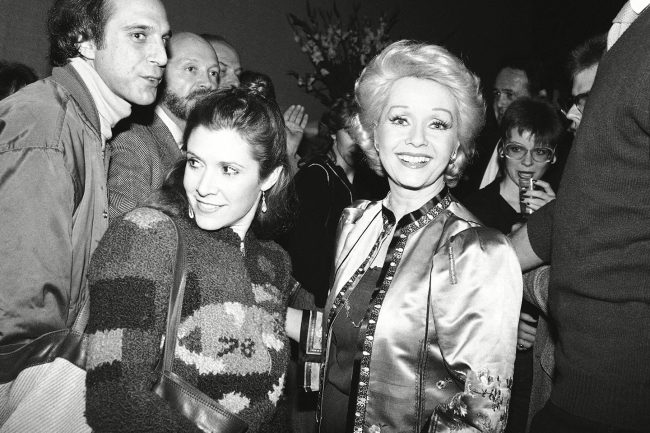On December 26th, famed actress, author and noted wit Carrie Fisher passed away at the age of 60. Two days later, her mother, the starlet of old Hollywood, Debbie Reynolds, passed too, at 84. On January 7th, HBO released a touching documentary, Bright Lights: Starring Carrie Fisher and Debbie Reynolds, on the relationship between mother and daughter in the Hollywood spotlight. It had been set for release in March. No one expected that they would not see the premiere, but even before their passing, the level of affection that the public had for these women was made clear.
The documentary felt like a fitting tribute for the two women they were, exploring all parts of their lives, from their complicated relationship to Carrie’s mental illness, to how they dealt with ageing together and to Debbie’s own Hollywood stargazing. What struck me while watching the film was how much they seemed to enjoy entertaining people. The late Reynolds kept on performing until her final years, putting on shows to shrinking older crowds while singing, joking and reminiscing. She didn’t do it for the money or for the ego (though they certainly helped). Debbie Reynolds loved to make people happy. In Carrie’s words, “performing gave her life”.
This is why the celebrity matters to us. We don’t care about celebrities because they are celebrities. We care about these people because they make us feel happy and help us forget our troubles, even just for a few minutes. At an artist’s best, they form an intimate connection with us, either through our familiarity with them or through the sheer emotional power of their work. It’s impossible to truly know a person we’ve never met, but when it comes to the icons that define our lives and the way we understand culture, it can feel like we truly do know them. When things don’t seem to make sense, the stars reach out to us and make us feel less alone.
In the wake of David Bowie’s death, just over a year ago, the world, myself included, felt shocked and moved. With the release of Blackstar, he managed to turn his death into performance art, a transcendent grand finale to his public persona. He was the soundtrack to many of our lives, the man who put a voice and guitar riff to feelings that we all have. One year on, his death still feels like an important moment to me, and watching the documentaries about him on TV has made me think of the cultural legacy he left us, and me. Here was a man who seemed to touch everyone in some way. To fans of George Michael, the news of his passing last month shocked and moved them just as the news about Bowie had me. And the same to fans of Richard Adams or John Berger.
The memories, feelings, movements and ideas that we associate with our icons are important to us, and losing an important part of those memories hurts. We expect these people to live forever, entirely separate from the concept of death, just like we divorce ourselves from the idea that we change and grow, that we lose things about ourselves. When you lose a part of those memories it hurts to look back on it and see how you’ve changed and what you have lost. You see how that period of your life has died too.
Celebrities are what they mean to us. But celebrities aren’t just celebrities. They’re people underneath, those that love, care, parent, do the dishes and live life just like us. When a celebrity dies, it provokes recognition of finality, and that shocks us and terrifies us. If the people we idolise can die, then we can too. Many decry the public outpourings of grief for the famous on social media, but they miss the point. Mourning is not for the dead, but for the living, and the bright lights that once shone by performing their songs, dances and their art made us feel something. They meant something to us. It’s okay to mourn someone you never knew, because they made you feel like they knew you.







